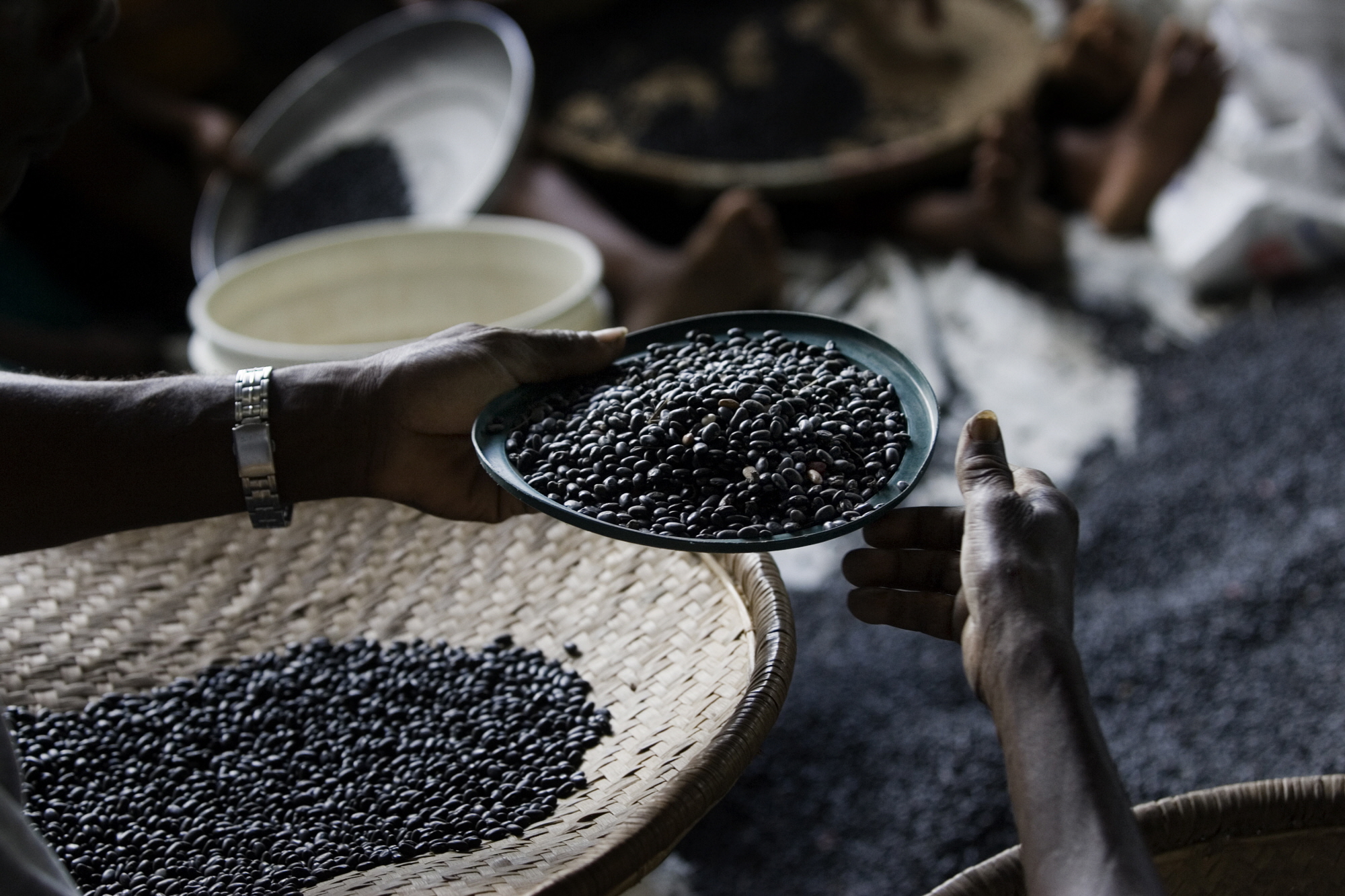Lifeline: Distributing pulses seeds in emergencies

Emergencies like natural disasters and protracted conflicts can have a devastating impact on countries and populations. Among the many sectors affected by emergencies is agriculture—floods, droughts, hurricanes and war can wipe out farms and crops in an instant, leaving behind a barren landscape and widespread food insecurity.
One of the primary strategies of FAO in emergency operations is to provide quality seeds of appropriate crops and varieties to farmers in a timely manner. Bean seeds are among the most widely distributed for many reasons. Due to their low oil content, dried beans and pulses have a slow rate of deterioration, meaning they can be stored in heat and humidity for a long time without losing their ability to germinate and grow. Beans are also a popular food in many diets across the world, and a valuable source of protein in areas where meat and dairy are economically inaccessible.
FAO includes beans in its emergency seed distribution programmes all over the world. Read on to learn more about some of FAO’s disaster response operations that include the provision of pulses seeds.
Madagascar: disaster response and prevention
More than three-quarters of Malagasy families earn a living from agriculture, but frequent natural disasters cut into production and incomes, pushing families into poverty and hunger. From 2008 to 2010, FAO managed a project in the country aimed at improving the food security of the most vulnerable farming families and strengthening farmers’ resilience to soaring food prices and recurrent natural calamities. During this period, FAO distributed 50 tonnes of bean seeds of the lingo blanc variety and 3 tonnes of rice seeds to 10 000 households in the disaster-prone areas of Vatovavy Fitovinany and Atsimo Atsinana. FAO also provided training on production and storage of seeds. The bean seeds alone achieved a total production yield of 617 250 kg.
Lesotho: improving crop yields
In the past year, farmers in Lesotho have been experiencing low yields from their staple crops due to low soil fertility, soil erosion, drought, erratic rainfall and use of low yielding seeds. This has affected food production as well as considerably reducing incomes. Since 2012, 18 500 vulnerable farmers in Lesotho have received agricultural inputs through the FAO’s Emergency and Resilience Programme. These inputs included a 5-kg bag of maize seeds and a 5-kg bag of bean seeds. A large quantity of these seeds, worth over LSL 1 million, was purchased locally from the seed producers supported in earlier projects.
 After the devastating earthquake in 2010, the FAO worked closely with the Haitian government to rebuild the agricultural sector, improve food security and create employment and livelihood opportunities for the rural population and internally displaced people moving to rural areas. Among other activities, FAO distributed seeds and supported the establishment of emergency seed stocks and seed storage and conservation. One project focused on the multiplication and distribution in rural areas of four bean varieties, two pigeon pea varieties, three maize varieties, one sorghum variety and three species of forage crops. The project reached 13 000 households and 30 groups of artisanal seed producers, eventually producing more than 3 000 tonnes of quality seeds for different crops, which helped to improve the diets of beneficiary households and generated additional revenue through the sale of surplus crops.
After the devastating earthquake in 2010, the FAO worked closely with the Haitian government to rebuild the agricultural sector, improve food security and create employment and livelihood opportunities for the rural population and internally displaced people moving to rural areas. Among other activities, FAO distributed seeds and supported the establishment of emergency seed stocks and seed storage and conservation. One project focused on the multiplication and distribution in rural areas of four bean varieties, two pigeon pea varieties, three maize varieties, one sorghum variety and three species of forage crops. The project reached 13 000 households and 30 groups of artisanal seed producers, eventually producing more than 3 000 tonnes of quality seeds for different crops, which helped to improve the diets of beneficiary households and generated additional revenue through the sale of surplus crops.
Assistance in the Dry Corridor of Latin America
The dry corridor of Latin America is regularly affected by extreme natural hazards, mainly recurrent droughts and severe flooding. It is estimated that more than 1 million families in the area rely on subsistence farming, and these natural disasters can have drastic effects on their agricultural production and livelihoods. In Guatemala, FAO responded to droughts from 2008 to 2010 by distributing bushels of locally produced bean seeds, in addition to other agricultural inputs. FAO has also provided training on the artisanal cultivation of bean seeds and crops. in 2015, dry weather caused by El Niño has led to estimated production deficits of as much as 60 percent of maize and 80 percent of beans. These declines put a large number of farmers in El Salvador, Guatemala, Honduras and Nicaragua in need of agricultural assistance. FAO is working with governments to support their response efforts, including the emergency assistance and building resilience to climate change.

